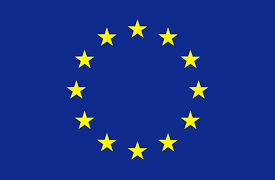By Ere-ebi Agedah
The European Union is re-affirming its commitment to supporting Nigeria’s electoral process with the launch, on Monday September 12, of a programme aimed at promoting transparent, inclusive and credible elections in the country.
The programme tagged EU Support to Democratic Governance in Nigeria (EU-SDGN) Phase II, is a €39m initiative. funded under the EU’s Neighbourhood Development and International Cooperation Instrument, over a five-year period.
In a press statement made available to Heritage Times, Ambassador of the EU to Nigeria and ECOWAS, Ms. Samuela Isopi noted that the overall objective of the EU-SDGN is to foster a functioning pluralistic, inclusive, participatory and representative democracy in Nigeria. Inclusive, participatory and transparent elections are a pre-requisite for a strong democracy.
“Ahead of the 2023 General Election, Nigeria is at a pivotal moment that allows the country to take important steps to consolidate democracy and strengthen the electoral process. The European Union continues to partner with Nigeria in the on-going reform process with a view to strengthening the capacity to conduct well-managed elections and with ample participation of all Nigerians. For this to happen, all must contribute, from the key institutions to the political parties and candidates, from media to civil society,” she said.
The project will be anchored in the priorities identified by the Nigerian government. It also builds on the lessons learned from the implementation of phase I of the programme (2017-2022), and the recommendations of the EU Election Observation Mission made after the 2019 General Election as well as those of the EU Election Follow-up Mission to Nigeria. More specifically, it will focus on six thematic areas of support:
Improve the quality of electoral administration in Nigeria.
Strengthen capacities for legislative and judicial reform in compliance with democratic principles and standards.
Enhance Pluralism, internal democracy and equality of opportunity in the political parties and the political party system.
Empower Media, including new media to promote fair and ethical coverage of the electoral process and combat hate speech and disinformation.
Enhance participation of women, youth and other marginalized groups in the political process.
Empower civil society organisations and relevant agencies to demand greater transparency and accountability in the electoral and decision making process, and promote greater citizens’ participation.




































